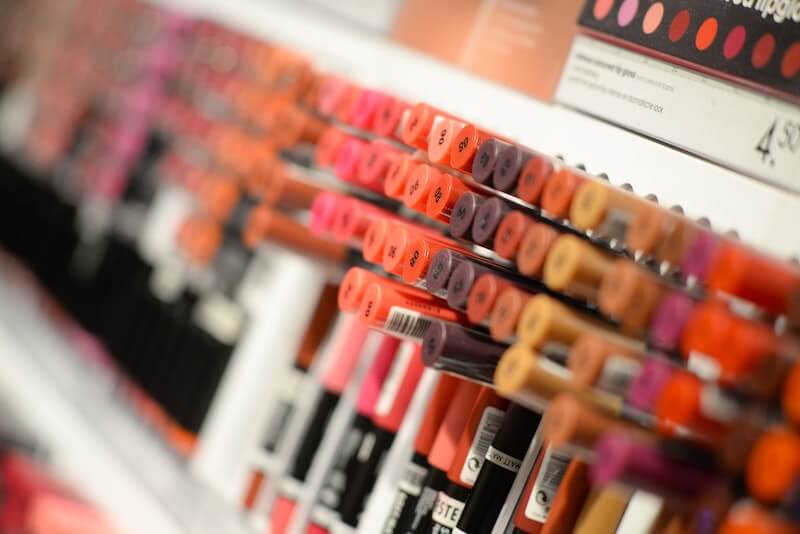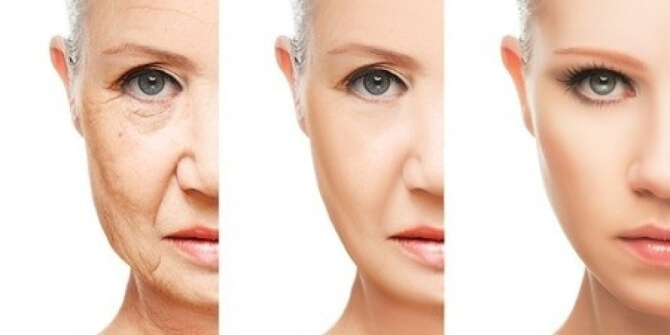You probably know that almost all acne has a bit of a hormonal component to it, but in this article we are going to focus on acne in which the cause specifically lies in the balance between the major sex hormones: estrogen, progesterone.
Without testing your hormones you may not ever be 100% sure, but there are quite a few signs that can allow you to make a very informed guess.
You are not alone in struggling with adult acne, and in this article we take a look at how you can spot if your acne is hormonal and what you can do about it. Read more on is my acne hormonal…
5 signs your acne is hormonal
1. You are suffering with other hormonal symptoms
Hormonal acne presents itself because of an underlying hormonal imbalance, so it is rare that it will present itself in isolation without other symptoms.
If your acne is very mild, you may not have other noticeable hormonal symptoms, but you probably have at least a few.
Your hormones are very powerful and certainly have the power to make your life miserable in many ways. The most obvious hormonal symptoms that most women experience is PMS (post menstrual symptoms), such as; anxiety, mood swings, irritability, bloating, sore breasts and cravings.
You may also suffer with period cramps, stomach pain, heavy periods or irregular/absent periods.
Other hormonal symptoms include; fatigue, low libido, lack of energy, brain fog, infertility, depression, digestive problems, hair loss, stubborn weight gain and insomnia.
2. Your acne is around your mouth, chin or jawline
Hormonal acne almost always appears first around the mouth, chin, and sometimes jawline.
As it gets worse, it can spread to the rest of the face and other parts of the body. If your acne is showing up in locations on the body without also being around the mouth, chin and jawline, then chances are it probably isn’t primarily hormonal.
RECOMMENDED: Zap & Clear Serum from Green People
3. Spots come and go around the time of your monthly cycle
This is due to your sex hormones going through significant swings throughout the month as your body prepares itself for pregnancy, and then menstruation. If there is an imbalance, sometimes it swings in favour of clean skin, and other times it doesn’t.
Popular times for breakouts (when symptoms peak) are the week before your menstrual cycle. It could also be during ovulation or just before the period beings, although some women actually find it’s the opposite for them. We are all different, so if you feel your spot breakouts appear at certain times of the month – keep a diary to track when your breakouts occur the most. This should then give you a clear indication if it’s hormonal or not.
SEE ALSO: Hormones and your skin
4. Spots are stubborn
Hormonal acne is usually a lot more stubborn than other types of acne.
This means that they are not as responsive to most treatments as other acne is. A healthy lifestyle can significantly lessen your hormonal acne, although you may find that it will not go away completely.
Make sure that you have a great skin care routine (tailor made for your skin type), as this makes a huge difference to acne. Although yet again, when it comes to hormonal acne it may still be hard to shift.
5. Shape, size, sensation and appearance
Hormonal acne is usually deep, cystic, and sensitive to touch. You may feel a sensation of pain or pressure where you have a spot, even if you are not touching it.
This kind of acne is likely to leave a scar if you try to pop it, so you need to take extra care when treating it.
What can I do to help my hormonal acne?
Eat lots of essential fatty acids
Fatty acids help to reduce signs of inflammation as well as balancing hormones and reducing androgens.
Healthy fats such as; evening primrose oil, flax oil, borage oil, high quality fish, extra virgin olive oil, coconut oil, nuts and seeds, avocados etc.
Vitamins and minerals; Vitamin A, B, C, Zinc and Magnesium
Avoid foods that contain sugar imbalances
Sugar fluctuations from eating processed/junk food can create sugar spikes, which create stress in your body. Try to opt for low GI (glycemic index) foods that are organic. This means less potatoes, white flour products, and rice.
Choose sweet potatoes, greens, and grains such as quinoa as they are better for your body and skin!
SEE ALSO: How to get rid of spots starts with your diet
Lower your stress levels
Stress has an enormous impact on your hormones and acne, so try to stress less!
Whenever you are stressed, your body pumps out more cortisol. More cortisol (stress hormone) in your system increases androgens (male sex hormones) which in turn, causes more acne to appear.
SEE ALSO: How lowering your stress levels helps to get rid of spots
Drink water
Make sure that you are drinking at least 1.5 – 2 liters of water everyday. Water helps to flush out bad toxins in your body, which in turn means your skin is less likely to breakout, leading to healthier, glowing skin.




